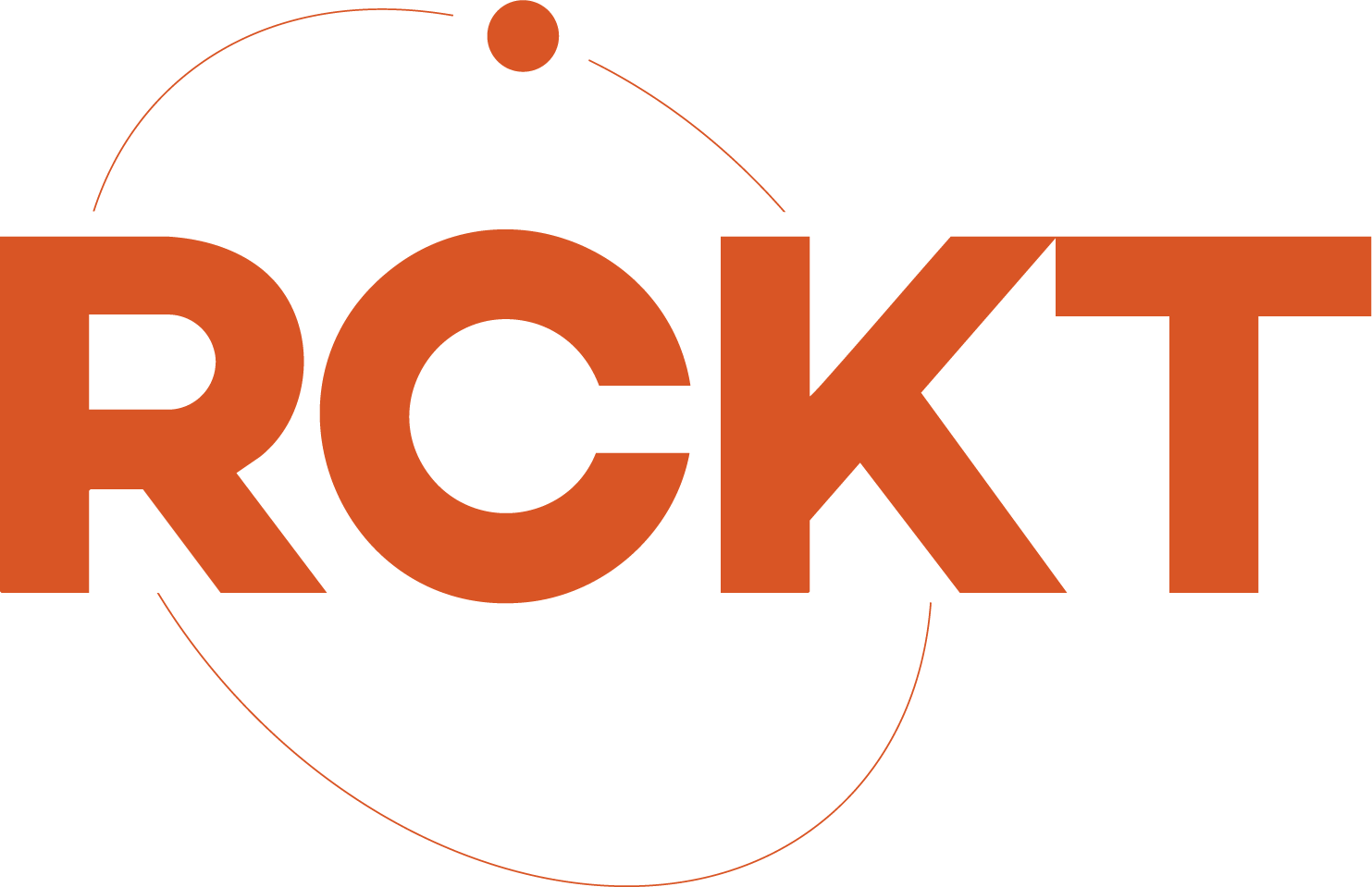Launching early stage startups in 2026 means entering a world where opportunity and risk are both at record highs. The pace of change and complexity is unlike anything founders have faced before. Did you know that more than 90% of startups struggle to survive their first few years, with funding trends shifting dramatically each year?
Understanding the unique challenges ahead is crucial for anyone hoping to beat the odds. In this article, we uncover the seven most pressing obstacles that early stage startups will face this year, including funding, talent, competition, regulation, technology, customer acquisition, and operational resilience.
Ready to gain actionable insights and strategies that could make all the difference for your team? Read on to prepare for success in the 2026 startup landscape.
The Evolving Startup Landscape in 2026
The business environment for early stage startups is shifting rapidly as we approach 2026. Founders face a world shaped by economic volatility, fierce competition, and relentless innovation. Understanding these changes is crucial for anyone hoping to succeed in this high-stakes environment.
Shifting Market Dynamics
Global economic uncertainty is the new normal for early stage startups. Markets are more unpredictable, making it tough for founders to plan long-term. Competition is intensifying, not just from established players but also from a surge of new entrants across industries.
Remote-first and distributed teams are now standard. This shift opens up access to talent worldwide but also creates new management challenges. For example, the rapid rise of AI-driven startups means founders must adapt faster than ever before.
Sustainability and ethical business practices are no longer optional. Customers and investors expect startups to operate responsibly, making these values central to modern business strategies.
Investor Expectations and Funding Trends
Investor attitudes toward early stage startups have evolved significantly. Today, investors set higher benchmarks, focusing on sustainable growth rather than aggressive scaling. Startups must show clear paths to profitability and demonstrate prudent spending.
Alternative funding options like crowdfunding and revenue-based financing are gaining traction. Early stage startups that excel in financial transparency and modeling will stand out in this tighter market.
Regulatory Changes and Compliance Pressures
Rapid regulatory changes are impacting early stage startups worldwide. New data privacy laws, such as updated GDPR and CCPA rules, require startups to adapt quickly or risk penalties. Cross-border operations introduce additional complexity, especially for companies expanding globally.
Environmental, Social, and Governance (ESG) requirements are now a priority. Startups must demonstrate a commitment to ethical practices from day one. The cost of legal advice and compliance tools can be high, making early investment in compliance expertise a strategic necessity.
Staying ahead of regulatory shifts is vital as businesses scale, helping avoid costly missteps and maintain investor confidence.
The Role of Technology and Innovation
The pace of technological change is accelerating for early stage startups. Adopting AI, blockchain, and automation is essential to remain competitive, but integrating these tools can strain limited resources.
Continuous innovation is now expected. For instance, generative AI is transforming product development, disrupting traditional workflows across industries. Startups must balance the need to innovate quickly with the risk of overcommitting to unproven technologies.
Building a scalable, flexible tech stack and fostering technical leadership are key to thriving in this dynamic landscape.
The 7 Key Challenges Facing Early Stage Startups in 2026
Launching early stage startups in 2026 means navigating a landscape filled with both promise and peril. Founders and teams must tackle a host of obstacles, each demanding strategic thinking and resilience. Below, we break down the seven most critical challenges, offering insights and examples to help early stage startups not just survive but thrive.
1. Access to Capital and Investor Confidence
For early stage startups in 2026, securing funding remains a top hurdle. Economic volatility has made investors more cautious, especially at the pre-seed and seed stages. Venture capital funds are being allocated more selectively, with investors demanding clear paths to profitability and sustainable growth.
Competition for capital is fierce. Many early stage startups find themselves vying for attention in a crowded field, with traditional VC funding harder to obtain. Recent years have seen a notable decline in first-time seed deals, reflecting this trend.
To succeed, early stage startups must offer robust financial modeling and transparent reporting. Investors now scrutinize burn rates closely, expecting founders to show realistic timelines and profitability milestones. The rise of alternative funding sources, such as crowdfunding and revenue-based financing, offers fresh options but also comes with unique challenges.
Macroeconomic factors like inflation and shifting interest rates directly impact startup valuations. Founders need to understand these dynamics to negotiate effectively and set realistic expectations. For more in-depth guidance, check out Seed stage startup strategies to help navigate these funding waters.
Ultimately, early stage startups that adapt to these new realities and build strong investor relationships are more likely to secure the capital they need.
2. Attracting and Retaining Top Talent
Talent is the lifeblood of early stage startups. In 2026, competition for skilled workers, especially in tech and product roles, is more intense than ever. The remote work revolution has expanded the talent pool globally, but it also increases the risk of employees being poached by competitors.
To stand out, early stage startups must craft compelling employer brands. Offering equity, flexible work arrangements, and unique perks has become standard practice. However, attracting talent is only half the battle—retention is equally challenging.
Onboarding and managing distributed teams require new processes and tools. Early stage startups need to foster a motivating culture, even when teams are spread across time zones. Mentorship, clear growth paths, and transparent communication are essential for keeping top performers engaged.
Hiring across multiple jurisdictions adds complexity and cost. Different employment laws, payroll systems, and cultural expectations must be managed seamlessly. Early stage startups that invest in people-first strategies and prioritize adaptability will have a distinct advantage.
3. Standing Out in a Saturated Market
Many early stage startups in 2026 operate in crowded sectors like AI, SaaS, and fintech. With so many players, differentiation is more important than ever. A strong value proposition and distinct brand positioning can help early stage startups break through the noise.
Some founders are finding success by targeting niche markets rather than broad audiences. Data-driven insights are invaluable for identifying underserved customer segments and tailoring offerings accordingly.
Building trust and credibility is critical for new entrants. Early stage startups must show authenticity and deliver on their promises to win over skeptical customers. Effective go-to-market strategies, such as leveraging influencer partnerships or launching with exclusive beta programs, can accelerate awareness and adoption.
However, there is a risk in chasing trends or copying established products. "Me-too" solutions rarely gain traction. Early stage startups need to focus on innovation and solve real pain points to sustain growth.
4. Navigating Complex Regulatory Environments
Compliance has become a major concern for early stage startups. With new data privacy laws like GDPR and CCPA, as well as global regulatory shifts, founders must stay informed and agile. Industry-specific regulations, especially in healthtech and fintech, add another layer of complexity.
Startups expanding into new markets may face hefty fines for non-compliance. Small teams often struggle with the cost of legal advice and compliance tools. Building compliance into products and operations from the start is now a best practice, not an option.
As early stage startups scale, regulations can change quickly. Keeping up requires ongoing education and, often, dedicated compliance roles. Insurance and risk mitigation strategies are also vital for protecting the business.
Ultimately, early stage startups that prioritize compliance early can avoid costly setbacks and build trust with partners and customers.
5. Rapid Technology Adoption and Integration
The pace of technological change is relentless. Early stage startups in 2026 feel pressure to adopt emerging tech like AI, automation, and advanced cybersecurity. While these tools can offer a competitive edge, integrating them with limited resources is a major challenge.
Balancing innovation with technical debt is crucial. Some early stage startups are leveraging generative AI for product development, but over-investing in unproven tools can drain resources. Building a flexible, scalable tech stack is key.
Technical leadership matters. Agile processes and clear roadmaps help teams adapt to new technologies without losing focus. Integration with third-party platforms can also create unexpected hurdles.
Early stage startups that get technology adoption right will be more resilient and better positioned to pivot as markets evolve.
6. Customer Acquisition and Retention in a Digital-First World
Digital channels dominate customer acquisition for early stage startups. However, rising advertising costs and declining organic reach make it harder to gain traction. Personalization and multi-channel strategies are now essential for reaching target audiences.
Content marketing, community building, and influencer partnerships offer powerful ways to grow. Early stage startups are using these approaches to foster loyalty and gather rapid feedback. Building trust is especially important in crowded digital markets.
Early feedback loops and data analytics are critical for optimizing both acquisition and retention. Privacy restrictions, though, make it harder to collect and use customer data effectively. Startups need to balance compliance with meaningful engagement.
Those early stage startups that focus on customer relationships and continuous iteration will outperform competitors.
7. Building Operational Resilience and Scalability
Agility is a hallmark of early stage startups, but scaling requires careful planning. Systems for financial management, operations, and supply chain resilience must be in place from the outset.
Market shocks can force early stage startups to pivot rapidly. Scenario planning and proactive risk management help teams prepare for the unexpected. Automation reduces manual errors and frees up resources.
Business continuity planning is no longer optional. Early stage startups must ensure they can weather disruptions, whether from economic shifts, supply chain issues, or global events. Leadership plays a vital role in fostering a resilient culture.
Early stage startups that invest in operational discipline and adaptability are more likely to scale successfully and achieve long-term growth.
Strategies for Overcoming Startup Challenges in 2026
Early stage startups in 2026 face a landscape filled with both promise and pitfalls. To thrive, founders and teams need to adopt strategies tailored to the unique pressures of this era. The following approaches can help build resilience, drive growth, and ensure long-term sustainability.
Building a Strong Foundation from Day One
Laying the groundwork is crucial for early stage startups. Establishing a clear vision, mission, and set of values gives direction and purpose from the start. Robust legal, financial, and compliance frameworks help reduce risk and support future growth.
Document core values and revisit them regularly
Invest in financial planning and transparent reporting
Seek mentorship and learn from experienced founders
Startups that prioritize operational discipline often scale faster and avoid common pitfalls. For more in-depth advice, the Startup founder essentials resource offers actionable insights for navigating early challenges.
2. Leveraging Technology for Competitive Advantage
Early stage startups that embrace technology gain efficiency and flexibility. Scalable cloud tools and AI can automate repetitive tasks, freeing up time to focus on growth and innovation. Automation in operations and marketing also improves productivity.
Adopt AI-driven customer support for quick response times
Use cloud platforms to scale infrastructure as needed
Stay agile to adapt to new tech trends
Technical leadership is key to integrating new solutions effectively. By leveraging technology, early stage startups can respond rapidly to market shifts and outperform slower competitors.
3. Focusing on Sustainable Growth and Customer Value
For early stage startups, sustainable growth means prioritizing customer feedback and iterative development. Building long-term relationships is more valuable than chasing quick wins. Community engagement and advocacy can fuel organic momentum.
Gather feedback early and often to refine products
Focus on customer lifetime value rather than one-time sales
Foster a loyal user base through consistent communication
Founders should explore growth marketing for startups to discover effective strategies for lasting impact. Data-driven decisions and continuous improvement keep early stage startups ahead.
3. Building a Resilient, Adaptable Team
A strong, adaptable team is the cornerstone of early stage startups. Hiring for cultural fit and providing ongoing training ensures that team members can navigate change together. Transparent communication builds trust and encourages problem solving.
Invest in mentorship and leadership development
Encourage open feedback and idea sharing
Recognize and celebrate small wins to boost morale
Teams that support each other through market shifts are more likely to thrive. Focusing on resilience helps early stage startups stay steady, even when facing unexpected challenges.
Future Outlook: The Startup Ecosystem Beyond 2026
Trends Shaping the Next Wave of Startups
The next era for early stage startups will be defined by rapid advancements in AI, automation, and decentralized technologies. Founders must navigate a landscape where environmental, social, and governance (ESG) priorities are at the forefront, driving innovation in climate tech and social impact ventures.
AI continues to disrupt established models, but this comes with challenges. Surging AI startup valuations raise bubble fears among investors, highlighting the need for realistic growth expectations and responsible technology adoption.
As early stage startups look to the future, staying agile and impact-driven will set them apart in an increasingly crowded field. The ability to adapt to these trends is now essential for survival.
The Role of Globalization and Cross-Border Collaboration
For early stage startups, global expansion offers both opportunity and complexity. Entering international markets means navigating new compliance rules, hiring across borders, and building partnerships that span continents.
Support for startups is growing, especially in regions like the EU, where EU plans tech scale-up fund to help bridge the gap with the US and China. These initiatives help early stage startups access vital capital and overcome fragmented regulations.
Embracing cross-border accelerators and diverse teams can accelerate innovation. However, founders must remain vigilant about regulatory shifts and cultural differences as they scale globally.
Preparing for the Unknown: Embracing Change and Uncertainty
The future for early stage startups is unpredictable, requiring founders to prioritize learning and adaptability. Scenario planning and risk management are now non-negotiable, as industry disruptions can reshape markets overnight.
Startups that thrive are those that encourage experimentation, maintain flexible business models, and are willing to pivot quickly when needed. Teams that foster a culture of continuous improvement are best positioned to weather storms and seize new opportunities.
Ultimately, early stage startups that embrace uncertainty and learn from change will be the ones driving the next wave of innovation.
After exploring the seven big hurdles that early stage startups will face in 2026, you might be wondering how to actually put these insights into action for your business. The reality is, moving from scattered marketing efforts to a unified, results-driven growth system isn’t easy—but you don’t have to do it alone. If you want to build clarity and confidence while setting your startup up for measurable growth, I’d encourage you to dive deeper into Learn more about RCKT's Growth Packages. Here, you’ll find practical ways to tackle these challenges head on and set your team up for lasting success.





